
|
|||||
|
|
As always the interview is available for download as a Word-document on the final page (p. 10)
FOURTH QUARTER 2003: |
||||
|
7:10
|
|||||
The transformation is total
We've just had a chance to reflect on the fact that California is richer than France despite being about half the size.
DH: And
population-wise will be the size of France in about 10 years. One needs
to think about that. So, you know, as many argue: maybe the problem is not
'too much America' but 'too little Europe' in some of these debates. If you
contrast the administrations, I would argue - I have to say, I was in
the Clinton administration so it, you know, it is a bit self-serving - but I
was part of those debates. I know that the issue for us was: How do you use
this power to construct a new type of arrangements after the Cold War? And the
theme, if you recall, was: enlargement and integration. Enlargement of
democracy - to take in a whole new tier of countries, who had not been part of
the Cold War-alliance frameworks, and integrate them into our community. That
was the logic behind NATO-enlargement. It was not a new aggressive policy
towards Russia, because the enlargement was balanced by a new NATO-Russia
framework. We had, after great tragedy, decided that we had to engage in the
Balkans - and did that as well.
That was the use of American power to promote democracy and human rights, and
to, of course, advance certain American interests. But interests, I would
argue, that Europeans mostly shared. The issue, at the moment, it seems to me,
is an argument within this administration that now is the time to use American
power, not to build institutions and to have powers identify with one another,
but to make sure that America is so far ahead in all dimensions of
power that there is no, as they call it: peer competitor. That everyone else
is discouraged. The problem with that of course is that you then set countries
against you, rather than identify their interests with you, and that is what
we see. Asymmetric threats: people have no power, they decide, you know: a few
grams of anthrax is not so bad. And you provoke the very threats from which
you're trying to distance yourself.
Some have suggested that there was a spectre of isolationism which came into office with George Bush and it is still there. American foreign policy is basically the practice of that: you've got a government that has been forced to confront the world, but really doesn't want to. If George Bush had the opportunity - he would concentrate on the economy and so forth. So basically the current administration has a policy which is the result of a Republican-Conservative government being forced to take on tasks it really doesn't wanna perform?
DH: Well, it didn't want to perform them but again: the transformation of "post-September-11th" is complete. There is not a going back to a September-10th-world in American society. This notion that we could insulate ourselves from the world's problems, and simply lower our taxes and do things like that, is simply gone. There is no support for that anymore, anywhere in this country. So curiously, the 'isolationists' if you will really aren't that debated. Again it is this issue which has been a theme in American foreign policy from the beginning of our existence: how you use American power? Do you present a model to the rest of the world and focus on perfecting your own model at home - and not engage much in the rest of the world? Or do you try to take the model outside - and intervene to spread it? That's been - always - our tension.
And right now the idea that you just perfect your model at home really is not carrying much of the debate, because we've seen that if you just do that, you're liable to be open to attack: the model could be destroyed simply because you're not paying attention to the rest of the world. That's what has changed - that is absolutely what has changed, and this administration has picked up on that, but is of course advancing its own particular agenda on top of it.
|
||||||||||||||
|
|
Illustrationsfoto: The White House (Tina Hager)
Portrætfoto: American Institute for Contemporary German Studies, The Johns Hopkins University